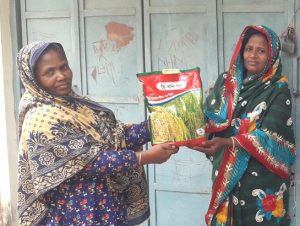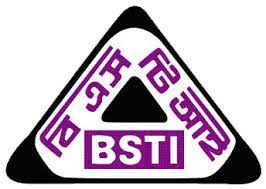Danielle Nierenberg
It’s been an incredible year at Food Tank in terms of our ability to incite, inspire, and spotlight change happening across the food system.Below, I’ve listed 12 reasons (from every month this year) why your dollars made a huge impact in 2018. Half of Food Tank’s funding comes from individual grassroots members, starting at $9.99 per month.
If you are not already a member, I really encourage you to click this LINK and join right now.
When you read this, I want you to really think about the fact that this is all accomplished with just three full-time staff members, and we hope you will compare the value and impact with organizations 10-times our size and budget. We really maximize every penny that you give, and we survive based on that giving.
1. In January, I spent time in Senegal doing on-the-ground reporting around agricultural innovation. During the visit, I met with researchers, farmer union organizers, women’s leaders—and was incredibly inspired by their thoughts on the future of agriculture. The visit was done in collaboration with the West and Central African Council for Agricultural Research and Development (CORAF/WECARD).
2. In February, we held our 4th Annual Washington, D.C. Food Tank Summit, “Cultivating the Next Generation of Young Food Leaders,” in partnership with The George Washington University, World Resources Institute, National Farmers Union, National FFA Organization, and National Young Farmers Coalition. Nearly 100,000 live-stream viewers tuned in to hear M.J. Altman, Editorial Director at the World Food Program USA; Representative Dan Newhouse (R-WA); Representative Chellie Pingree (D-ME); Roger Johnson, President of the National Farmers Union; Mark Poeschl, CEO of the National FFA Organization; and many more leaders on stage. Panels were moderated by NPR, the Washington Post, Politico, and more. We also introduced Young Farmer Spotlights at this sold-out event, highlighting those working on the ground and in the field every day for a better food system.
3. In March, the Inaugural Food Tank Seattle Summit was also a massive success. More than 500 in-person attendees and nearly 100,000 live-stream viewers tuned in to the sold-out event, titled “Growing Food Policy.” It was held in partnership with the Environmental Working Group, Food Action, Garden-Raised Bounty (GRuB), the Natural Resources Defense Council, and Seattle University. Seattle’s all-star line-up of speakers included U.S. Congressman Earl Blumenauer (D-OR), State House Representative Mia Gregerson (D-SeaTac); State House Representative J.T. Wilcox (R-Yelm); Kristen Rainey, Global Food Program Manager at Google; Ken Cook, President and Co-Founder of the Environmental Working Group; and more than 30 more.
4. In April, in collaboration with Food Tank, the Economics of Ecosystems and Biodiversity (TEEB), released a groundbreaking new report to evaluate the real costs and benefits—including environmental, health, and social impacts—of our agriculture and food systems. This Scientific and Economic Foundations Report provides the basis for a major paradigm shift in how we view and manage our agriculture and food systems, demonstrating how to evaluate not just the visible but also the hidden costs and benefits. The timing is critical—with 10 billion people to feed by 2050 and 40 percent of available land already growing food—we need to consider new frameworks and models for how we grow, process, distribute, and consume food and manage food waste.
5. In May, young leaders gathered at Apeel and Food Tank’s Aperitivo to confront food loss and food waste. Apeel Sciences and Food Tank invited speakers of The Global Food Innovation Summit to gather at Ratana, an acclaimed restaurant in Milan, for a sold-out event featuring food, drinks, and perspectives on reducing food waste. Danielle Nierenberg and James Rogers, CEO of Apeel Sciences, co-hosted the discussion featuring Alice Delcourt, Chef at Erba Brusca; Nicolas Jammet, co-founder of Sweetgreen; Riana Lynn, CEO of Food Trace; and Haile Thomas, CEO of The HAPPY Org. As the young leaders explored new solutions to the food system’s most urgent issues, more than 100 guests enjoyed a sustainable menu.
6. In June, we launched our first book in collaboration with the Barilla Center for Food & Nutrition and Island Press. Nourished Planet offers a hopeful but practical global plan for feeding ourselves sustainably. Edited by Food Tank, the book assembles a diverse group of internationally renowned experts to chart a bold path forward. Their vision will provide concrete solutions to hunger and obesity, stop food loss and food waste, promote nutrient-dense and indigenous crops, and realize the vision of a more equitable food system. Essays and interviews with “voices of the new food movement,” including Hans Herren, Vandana Shiva, Alexander Müller, Pavan Sukhdev, and others, offer a truly planetary perspective. More than 150 university food studies programs and courses in two dozen countries are already using the book as part of their educational curriculum.
7. In July, we launched our free podcast, “Food Talk with Dani Nierenberg,” which twice-weekly interviews some of the biggest names in food and agriculture. The podcast has already charted #3 in the iTunes nonprofit category and also appears on Google Play, Spotify, and Stitcher, as well as on FoodTank.com. Interviews have included Sam Kass, Michel Nischan, Karen Washington, Spike Mendelsohn, Questlove, Jim Perdue, Tamar Haspel, Hari Pulapaka, and dozens more.
8. In August, we reached a combined 1.2 million organic followers across our Twitter, Facebook, Instagram, and LinkedIn accounts.
9. In September, we published our 250th article of 2018. Food Tank writes 100-percent original reporting. Some articles this month included an in-depth interview series with Alice Waters about her “Lunch for All” campaign; a bi-weekly “Farmer Friday” feature with Niman Ranch talking about the challenges U.S. farmers face; a series on sustainable packaging with Sealed Air Corporation; a partnership with CGIAR’s Platform for Big Data in Agriculture to look at how Big Data is launching new tools and initiatives into research centers and programs; a series working with ICRISAT to feature Smart Foods like millets, sorghum, and legumes and how they are being used to target specific nutrient needs of malnourished children; and much more.
10. In October, after an incredible 2017 NYC Food Tank Summit, we partnered with the NYU Steinhardt School of Culture, Education, and Human Development and the Natural Resources Defense Council for a 2018 NYC Food Tank Summit that was more than double in size and scope. We were thrilled to have top food journalists as moderators, including Bryan Walsh, Time Magazine; Charles Passy, The Wall Street Journal; Julia Moskin, New York Times; and Ben Tinker, CNN. The 2018 NYC Food Tank Summit broke all of our expectations. We were able to accommodate more than 600 attendees throughout the day, along with an astonishing 98,000 watching the live stream. NYC Summit speakers have included Questlove, Dan Barber, Kimbal Musk, Tom Vilsack, Tom Colicchio, Marion Nestle, Tim Ma, Ruth Reichl, and dozens more.
11. In November, Food Tank hosted our first San Diego Summit, “Growing the Food Movement,” in partnership with the Berry Good Food Foundation, the University of California Division of Agriculture and Natural Resources, and the San Diego Bay Food + Wine Festival. It featured more than 30 different speakers from the food and agriculture field including Josh Henretig, Senior Director of AI for Earth & Sustainability at Microsoft; Gavin Newsom, Governor of California; David Bronner, CEO of Dr. Bronner’s; and Dolores Huerta, Co-Founder of United Farm Workers (via video).
12. In December, the Refresh Working Group featuring Food Tank, Google, the U.S. Chamber of Commerce, and more than 20 other partners released Refresh: Food and Tech, from Soil to Supper, a qualitative report on the myriad of ways that artificial intelligence is being adopted across the U.S. food supply chain. The report highlights how advanced technologies are helping to drive innovation in the nation’s food system. We held a sold-out forum at Google’s HQ in Chicago that featured speakers such as former U.S. Secretary of Agriculture Tom Vilsack and was live-streamed to more than 19,800 viewers.
Thank you for making 2018 such an impactful year.
In a few days I’ll be releasing 2019 plans, but keep in mind that our vision is limited by your taking action right now and becoming a Food Tank member today.
Which worldwide accomplishments in food and agriculture from the past year make you most excited for 2019? Please email me at danielle@foodtank.com to share with us!
(Danielle Nierenberg is President of Food Tank and an expert on sustainable agriculture and food issues. She has written extensively on gender and population, the spread of factory farming in the developing world and innovations in sustainable agriculture.)




